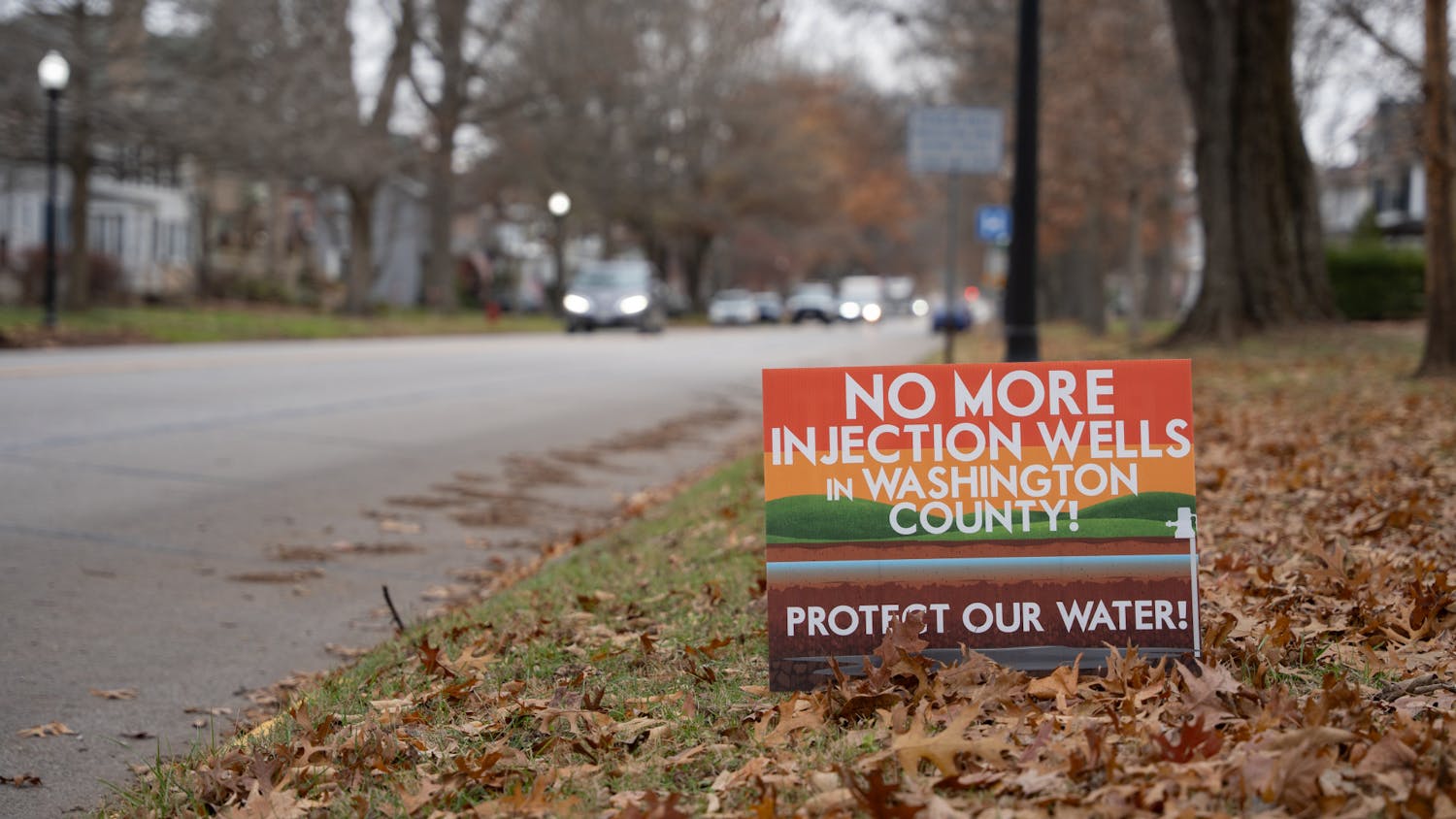Whether panelists and audience members were pro-legalization or not, they all had passionate stories and opinions Tuesday night at the Amazing Blazing Marijuana Debate in Baker University Center Theatre.
The turnout for the hour and a half-long debate was so large the theater could not adequately hold the audience. Baker Center staff brought extra chairs to accommodate the attendees just before the discussion began, and even then there were many people sitting on the floor or standing against the wall.
Terry Koons, assistant director of Health, Education and Wellness in the Department of Social and Public Health, moderated the program.
The panel included former Ohio University student Will Klatt; OU senior Shelby Delp; Ohio Rights Group members Mary Jane Borden and John Pardee; Health Recovery Services, Inc. members Reggie Robinson and Joe Gay; and assistant director of OU’s Community Standards and Student Responsibility program Rich Kane.
The discussion primarily focused on the issue of medical marijuana legalization, and those on the panel had contrasting opinions.
“The question of whether we should or should not (legalize) has already been answered,” Pardee said of medical marijuana. “We want to make sure it is done safely and responsibly. We think it needs to happen now.”
Gay argued that it is not the public’s place to make the decision and that medications need to be passed by the Food and Drug Administration.
“We don’t vote on medication,” he said. “We subject it to research. That’s how all medication should be.”
Borden, however, questioned the reliability of the FDA.
“The FDA process has produced some fairly bad drugs,” she said.
She claimed that it would take too long for these medicinal cannabis uses to hit the market after going through the entire FDA process.
“There are people who are very sick now,” she said. “They cannot wait another 12 years.”
Public health brought the panel to another talking point.
The moderator then prompted the panelists with questions, such as the effect legalization would have on other crimes.
“You will see a lower rate of crime and violence,” Pardee said. “If you have a safer alternative rather than dangerous pharmaceuticals, violence will be reduced.”
Gay, however, strongly disagreed.
“You will certainly not see people turning from heroin to cannabis; it is too strong an addiction,” he said. “There may be some people who shift from alcohol to cannabis, but in general our impression is that there will simply be more people using cannabis and not much change in other drug use.”
A student in the audience asked how the panel would respond to the statement that marijuana is illegal in the first place because of societal discrimination, to which Klatt said poverty itself is a gateway drug.
“In a context of prohibition, we essentially created a context in which police can target youth, people of color, and poor people,” he said. “It’s a tool I don’t think we should give to the police to use against us.”
Although the panel had differing views on legalization of medicinal marijuana, they seemed to agree that legalization of recreational use is not a large priority at this time, regardless of their personal feelings on the matter.
Borden said the Ohio Rights Group is focusing on the people who need it most — the medical and therapeutic users.
Several students shared their stories regarding marijuana, including one emotional student who credits marijuana with saving his life after he became addicted to painkillers following a motorcycle accident. Another student claimed to have used marijuana to help pull himself out of depression after losing a sibling to suicide.
Robinson maintained his view that although medical marijuana could be a possibility in the future, it is not ready to happen yet.
“Research needs to happen before we open the floodgates,” he said.
@taylormaple
tm255312@ohiou.edu






